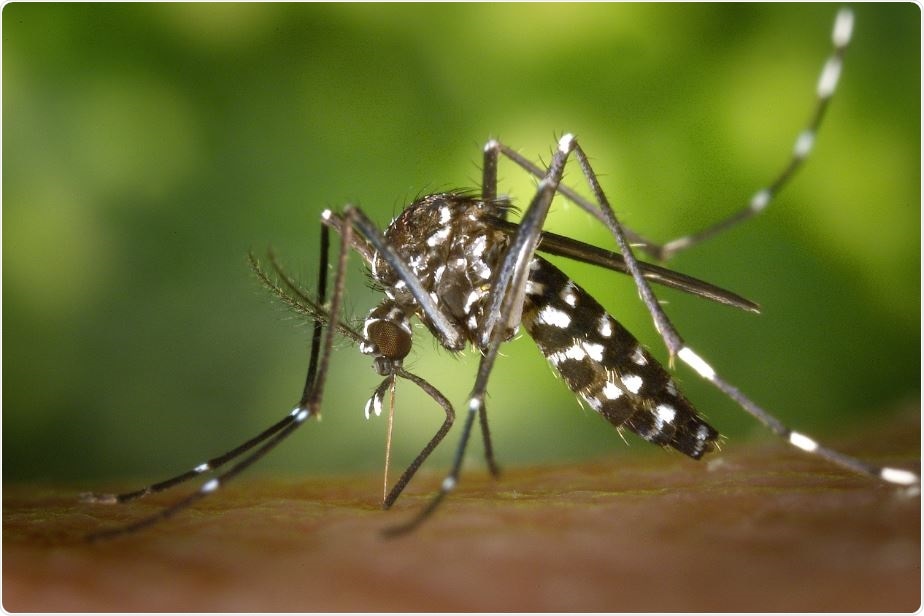Dengue, zika, and chikungunya viruses are transmitted by mosquitoes and cause tropical fevers with similar symptoms, making accurate diagnosis complicated. Now, researchers from Gwangju Institute of Science and Technology in Korea have developed a simple and low-cost diagnostic platform—a lab-on-paper strip—that can readily detect the specific RNA of these viruses from a small blood sample.

The ongoing COVID-19 pandemic has shown how important it is to have tools that can rapidly diagnose viral infectious diseases. Aside from the SARS-CoV-2 virus, which has currently taken the spotlight, the zika, dengue, and chikungunya viruses have also become major threats to human health in many parts of the world, particularly in tropical countries. All three viruses are transmitted by mosquitoes and cause diseases that have similar symptoms, making early diagnosis particularly difficult without complex molecular diagnostic equipment.
In a recent effort to make the diagnosis of these mosquito-borne diseases faster and easier, a team of scientists, led by Professor Min-Gon Kim from the Gwangju Institute of Science and Technology in Korea, have developed a compact, fully automatic, and inexpensive tool that can identify the presence of these viruses from a blood serum sample. The device, named LAMDA (stands for lab-on-paper for all-in-one molecular diagnostics) by the scientists, is essentially a mini laboratory on a paper strip—vaguely reminiscent of over-the-counter pregnancy tests.
LAMDA performs all the steps of a standard nucleic acid test (a molecular diagnostic test), namely sampling, extraction, amplification, and detection of the target viral RNA, without external intervention at any intermediate step. To use LAMDA, one has to simply place a drop of blood serum and some drops of distilled water on two pads. The liquids naturally flow through the paper strip horizontally and reach the base of a small vertical stack of layers that extracts all the RNA from the sample and multiplies any existing viral RNA of the three diseases.
The top layer of the vertical stack comprises individual “reaction” patches, each designed to detect one of the three diseases. After the RNA is extracted, it flows up to the top layer, where “LAMP (Loop-mediated isothermal amplification)” reactions cause the fluorescent indicators on a patch to become dim if its target viral RNA is present in the sample.
In this way, LAMDA can correctly diagnose any of the three mosquito-borne diseases in less than an hour. Excited about the results, which are published in Elsevier’s Biosensors and Bioelectronics, Prof Kim remarks: “We believe that with minor modifications, such as a portable system to maintain reaction temperature at 65 °C and a means to detect the fluorescence change with a smartphone, the proposed all-in-one paper chip can become a portable, low-cost, user-friendly, sensitive, and specific nucleic acid test platform with great potential in point-of-care diagnostics.”
LAMDA could be an excellent option for resource-limited clinics and hospitals, which are unfortunately common among countries most affected by mosquito-borne diseases. It could also bolster future research in the field of diagnostics for other infectious diseases.
We certainly hope that our approach and achievements with LAMDA will be helpful to advance research and development of on-site medical diagnostic tools.
Professor Min-Gon Kim, Gwangju Institute of Science and Technology, Korea
Perhaps, a generation of accurate and high-utility pocket diagnostic tools is on the horizon!
Source:
Journal reference:
Seok, Y., et al. (2020) Lab-on-paper for all-in-one molecular diagnostics (LAMDA) of zika, dengue, and chikungunya virus from human serum. Biosensors and Bioelectronics. doi.org/10.1016/j.bios.2020.112400.